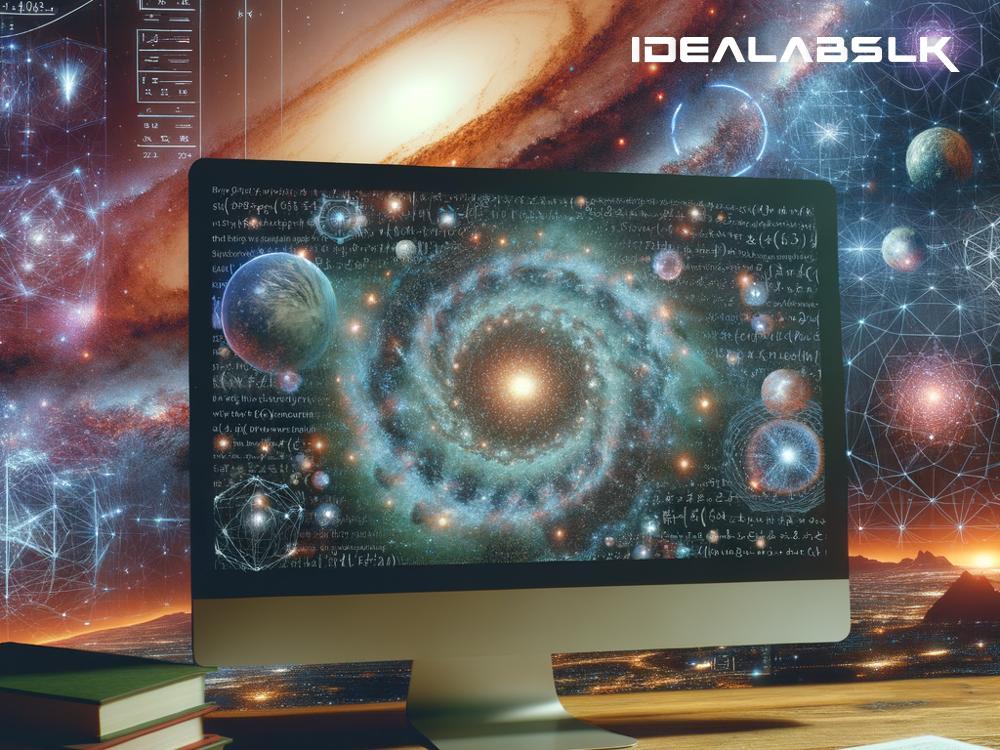AI and Big Data: Pioneering the New Era of Space Exploration
Space, the final frontier, has always captured human imagination and curiosity. Over the years, space research has made significant leaps, but with the advent of Artificial Intelligence (AI) and Big Data, we are entering a new era of discoveries, making them not only faster but also more accurate. As we look towards 2024, it's becoming increasingly clear how these technologies are transforming our quest to understand the cosmos.
Decoding Space with AI and Big Data
Space is vast, with an infinite amount of data waiting to be discovered. Every mission, satellite, and telescope, like the famous Hubble Space Telescope or the James Webb Space Telescope, generates terabytes of data every day. Sifting through this data manually to find valuable insights is like finding a needle in a haystack—an impossible task. Enter AI and Big Data, the dynamic duo making this task possible and even simple.
AI, with its machine learning capabilities, can process, analyze, and categorize this data at speeds no human can match. It can recognize patterns and anomalies that would probably go unnoticed by human researchers. Big Data technologies, on the other hand, provide the infrastructure and tools necessary to store, manage, and retrieve this massive amount of data efficiently and effectively.
Accelerating Discoveries
One of the most exciting prospects is the acceleration in the pace of discoveries. With AI and Big Data, what used to take years can now be achieved in months or even weeks. For instance, by analyzing data from telescopes, AI algorithms can quickly identify new celestial bodies, such as exoplanets, stars, and even galaxies, much faster than manual analysis could. These technologies also enhance the precision of these discoveries, reducing human error and ensuring the reliability of the findings.
The potential for new discoveries is not just limited to identifying celestial bodies. AI and Big Data are also instrumental in understanding complex phenomena such as black holes, dark matter, and the cosmic microwave background radiation. By processing the vast amounts of data collected on these phenomena, these technologies are uncovering insights that could answer some of the most fundamental questions about our universe.
Enhancing Mission Design and Operations
AI and Big Data are not only transforming how we discover and understand space but also how we explore it. The design and operation of space missions are becoming more efficient and effective, thanks to these technologies. AI algorithms can simulate countless scenarios to determine the optimal design for spacecraft and rovers, considering factors like weight, durability, and energy consumption.
Once a mission is launched, AI continues to play a crucial role. It can monitor the health of spacecraft, autonomously adjust course to avoid hazards, and even make real-time decisions based on the data being collected. This not only improves the safety and success rate of missions but also allows for more autonomy in exploring distant celestial bodies without direct human intervention.
Opening New Avenues for Collaboration
The power of AI and Big Data extends beyond the immediate sphere of space research. These technologies are fostering unprecedented collaboration between scientists, researchers, and institutions worldwide. By sharing data and AI models, the global scientific community can work together more effectively, pooling their knowledge and resources to make groundbreaking discoveries.
Moreover, these technologies are making space research more accessible. Enthusiasts and amateur astronomers can now contribute to and participate in space exploration initiatives, thanks to open-source AI tools and publicly available data. This democratization of space research is inspiring a new generation of explorers, eager to help unravel the mysteries of the universe.
Looking Ahead: The Future of Space Exploration
As we edge closer to 2024, the impact of AI and Big Data on space research is becoming more profound. These technologies are not just tools but catalysts for a new era of exploration and discovery. With them, we are not only expanding our knowledge of the cosmos but also enhancing our ability to venture further into space, perhaps even to Mars and beyond.
The journey of space exploration is far from over. With AI and Big Data leading the way, we are on the brink of uncovering answers to some of the most perplexing questions about our universe. The possibilities are endless, and the future is brighter than ever for space research. The next few years promise to be an exciting time, filled with discoveries that could redefine our understanding of the cosmos.

